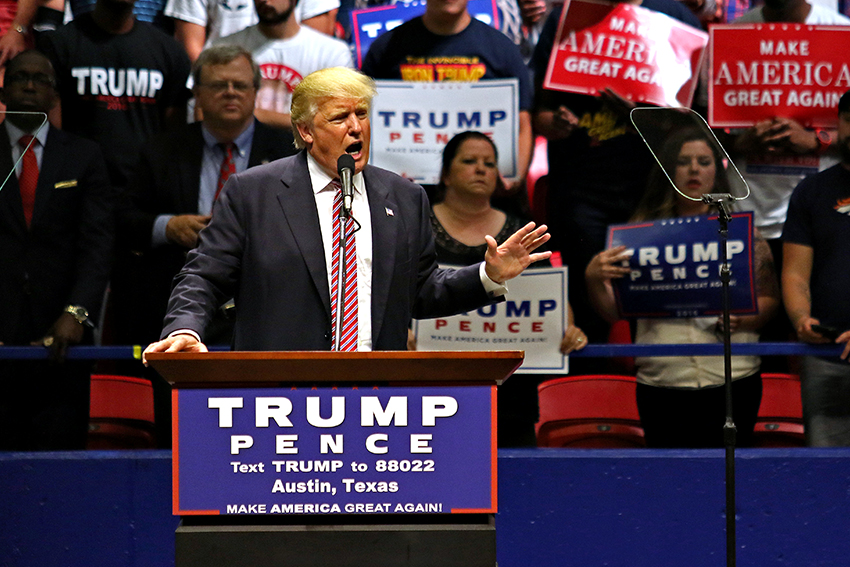Discussions regarding the legalization of marijuana — either medically or recreationally — have made their way to Texas. In June, Gov. Greg Abbott signed a bill into law allowing epilepsy patients to use oils containing small amounts of THC, the main chemical that causes the psychological effects of cannabis. A month earlier, a bill to legalize the recreational use of marijuana escaped the House Committee on Judiciary and Civil Jurisprudence, though it was never given a vote on the floor.
Twenty-five states and the District of Columbia have legalized medical marijuana usage, and four plus the District have initiated laws to legalize recreational usage. Despite some conservative apprehension, the pot climate in the United States is subject to change, and the next president of the United States will have a crucial role in shaping the marijuana industry as more states consider legalization.
Legalization would be a major step compared to decriminalization — making possession a misdemeanor rather than a felony — which is supported by Democratic nominee Hillary Clinton. She has expressed a disapproval of the incarceration rates, particularly in the black community, that are a result of prohibition, and as president, she would move marijuana to be a Schedule II substance, making possession a less severe offense. The new classification would also allow for institutional research on the plant.
Donald Trump has no clear stance on marijuana. Before politics, he supported legalization, but his views have reversed after entering the presidential race. Though unclear, it appears Trump is not directly opposed to some forms of legalization. However, with or without federal approval, five states will be voting to legalize recreational marijuana use on election day.
Should a conservative president choose to backpedal progress by deploying the Drug Enforcement Administration in states that have already taken legalization measures, thousands of people could lose their jobs. By December 2015, over 25,000 people were employed by some component of Colorado’s marijuana industry.
“Not even recreationally speaking, many people would lose their medicine,” said Madison Lamance, a University of Denver student who legally works for a grower in her area. “Weed has become a substitute for pills, which tend to be more addictive.”
Big businesses are also capitalizing on marijuana legalization. Scotts Miracle-Gro, a dominant force in the lawn and garden business, has seized the opportunity to do what it does best: help customers grow plants. In an interview with Forbes, CEO Jim Hagedorn described how he is attracting a new type of customer. He has already spent $155 million acquiring two companies that sell fertilizers and hydroponics equipment, perfecting their products with Scotts Miracle-Gro. Already profitable in unexplored territory, the company is paving the way for businesses to enter the cannabis industry.
Though legal marijuana may not be coming to Texas this legislative session, it may not be a complete fantasy, especially under a Clinton presidency. No matter which candidate wins in November, the effect on the cannabis industry will be profound.
Elkins is a journalism sophomore from Tyler. Follow him on Twitter @EthanErikElkins





















